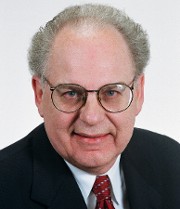 There has been a lot of talk recently in our healthcare publications about physician alignment or how we get our physicians to work with us as team members as opposed to being lone-rangers. This topic has become even more important now that Accountable Care Organizations (i.e. one entity justifies and takes responsibility for all of the medical procedures and processes for their patients) are one of the main thrusts in the healthcare reform legislation passed one year ago. Simply stated, physicians and hospitals will either sink or swim together when these Accountable Care Organizations are established since this is the future of healthcare reform in the USA.
There has been a lot of talk recently in our healthcare publications about physician alignment or how we get our physicians to work with us as team members as opposed to being lone-rangers. This topic has become even more important now that Accountable Care Organizations (i.e. one entity justifies and takes responsibility for all of the medical procedures and processes for their patients) are one of the main thrusts in the healthcare reform legislation passed one year ago. Simply stated, physicians and hospitals will either sink or swim together when these Accountable Care Organizations are established since this is the future of healthcare reform in the USA.
Since your physicians are also looking for a speedy solution to their (current and future) reduced reimbursement and insurance compliance morass, they are more open than ever before to working with your healthcare organization in improving quality, lowering cost and making their job easier. Yet, as Jay Goldstein, Administrative Director Hackensack University Medical Center, Hackensack (HUMC), New Jersey observes, “Some (physicians) go through denial, anger, bargaining and depression on their way to acceptance. But, nobody wants to be an outlier”, especially when it involves their medical procedures or practices.
That’s what HUMC found when they started to measure, score and share their physicians’ readmission rates, mortality rates, patient satisfaction, etc., with their medical staff. Since most physicians are competitive, prideful and progressive they don’t want their peers getting an edge on them. Over time, by sharing this kind of data with your medical staff they will self-adjust their behavior to conform to the community norms.
This same tactic holds true with supply chain management. If you want to align your department with your physicians you will then need to share their own performance data with them. For example, we can see from the data that we collect and analyze from our clients that, with few exceptions, pacemakers and difibulators are being implanted with no regard for the medical indications of our client’s patients. Though, once this data is shared with our client’s surgeons they immediately change their practice patterns to model the community norm, thereby saving their hospital hundreds of thousands of dollars a year.
If we realize that your physicians are people too, we can then start to understand that no physician wants to increase our healthcare organization’s cost, diminish its quality or lower its performance. But first physicians need shared data in order to align their performance with your healthcare organization. So next time you want to change your medical staff’s behaviors start by doing it with data – not logic or emotions.
Robert T. Yokl
Chief Value Strategist
Strategic Value Analysis® in Healthcare

Be the first to comment on "Yokl: Physician Alignment — No One Wants to be an Outlier"